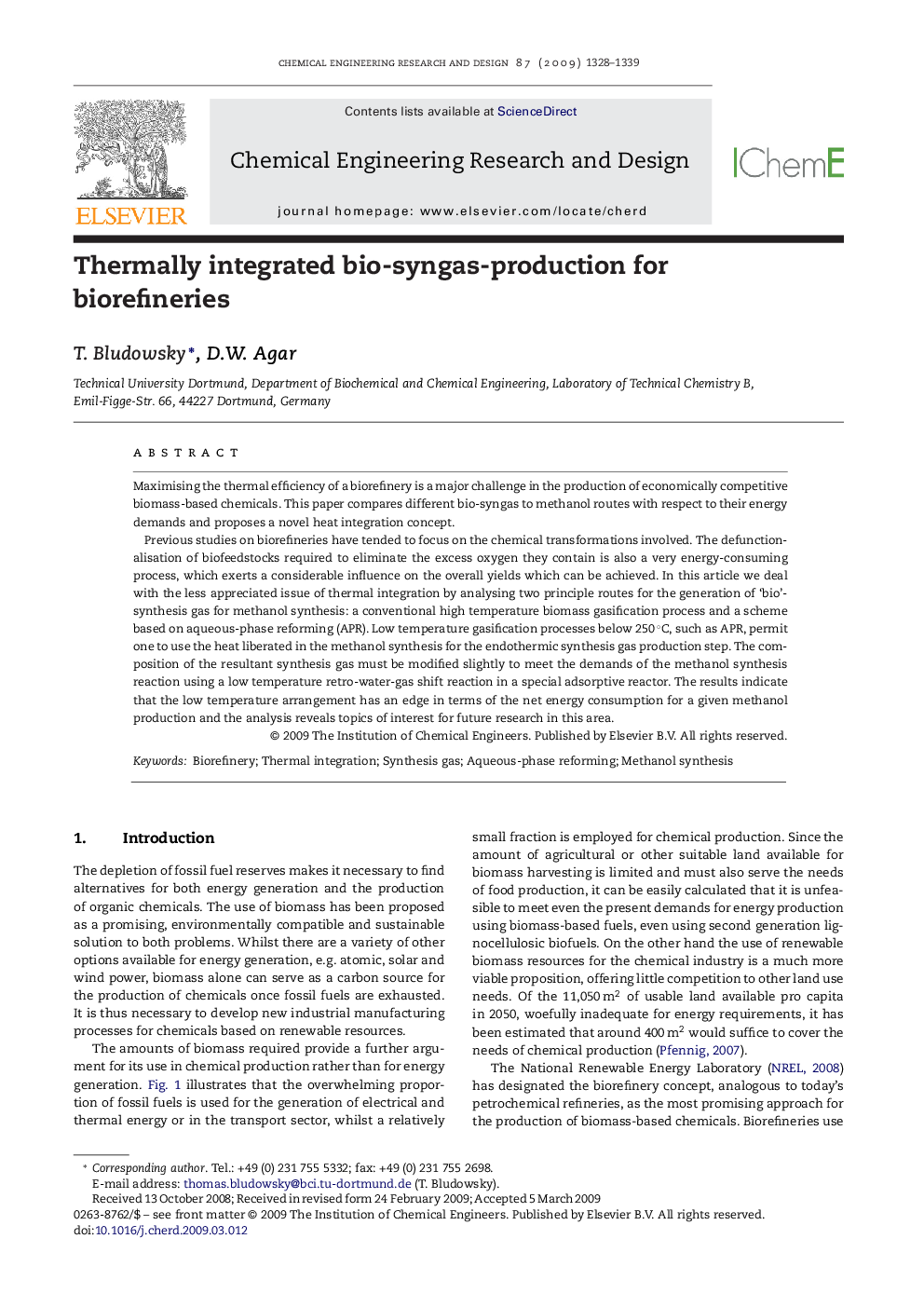| Article ID | Journal | Published Year | Pages | File Type |
|---|---|---|---|---|
| 621088 | Chemical Engineering Research and Design | 2009 | 12 Pages |
Maximising the thermal efficiency of a biorefinery is a major challenge in the production of economically competitive biomass-based chemicals. This paper compares different bio-syngas to methanol routes with respect to their energy demands and proposes a novel heat integration concept.Previous studies on biorefineries have tended to focus on the chemical transformations involved. The defunctionalisation of biofeedstocks required to eliminate the excess oxygen they contain is also a very energy-consuming process, which exerts a considerable influence on the overall yields which can be achieved. In this article we deal with the less appreciated issue of thermal integration by analysing two principle routes for the generation of ‘bio’-synthesis gas for methanol synthesis: a conventional high temperature biomass gasification process and a scheme based on aqueous-phase reforming (APR). Low temperature gasification processes below 250 °C, such as APR, permit one to use the heat liberated in the methanol synthesis for the endothermic synthesis gas production step. The composition of the resultant synthesis gas must be modified slightly to meet the demands of the methanol synthesis reaction using a low temperature retro-water-gas shift reaction in a special adsorptive reactor. The results indicate that the low temperature arrangement has an edge in terms of the net energy consumption for a given methanol production and the analysis reveals topics of interest for future research in this area.
